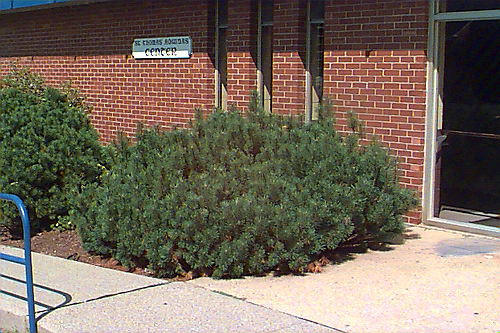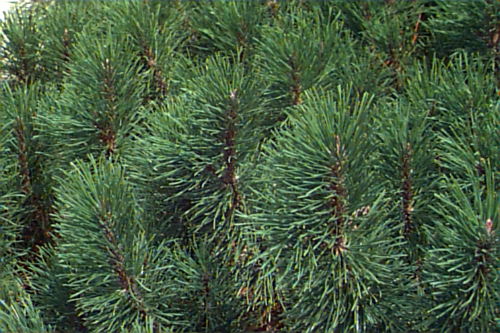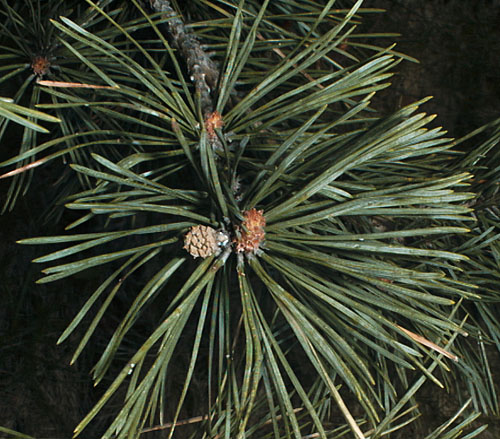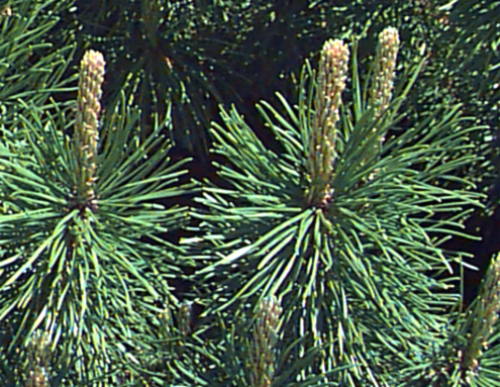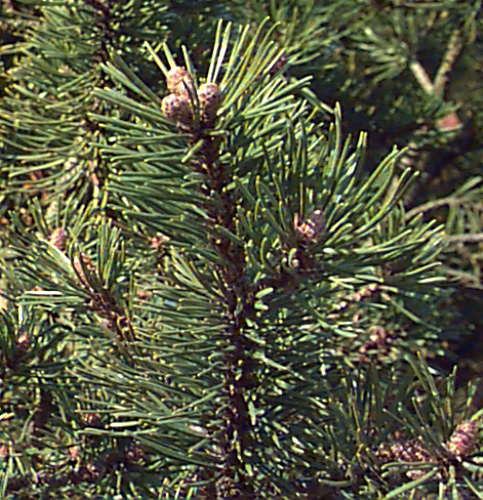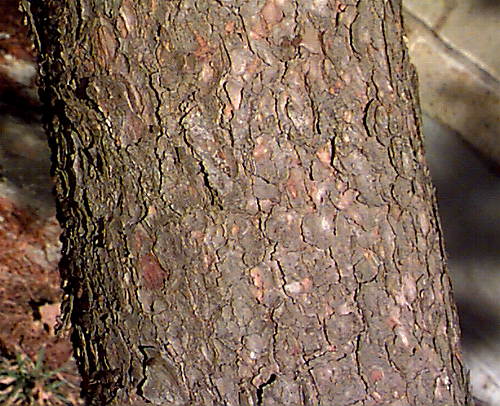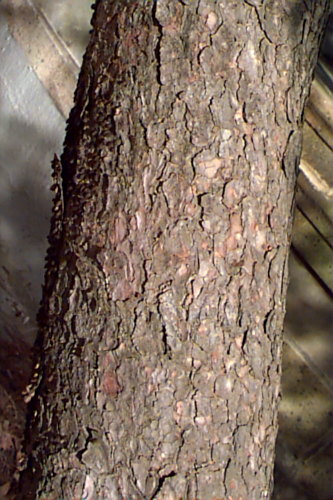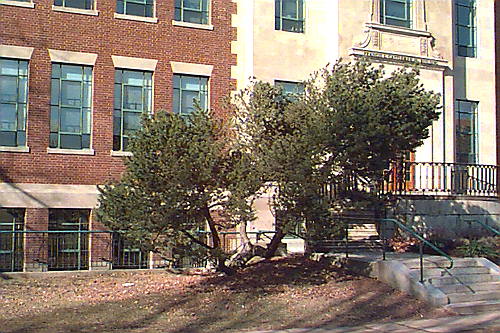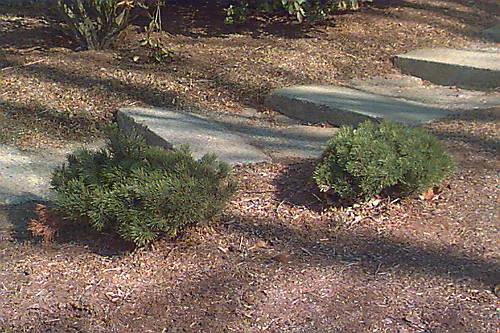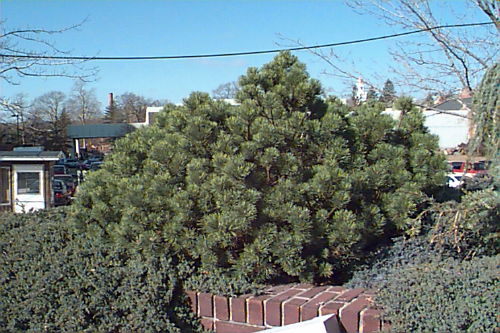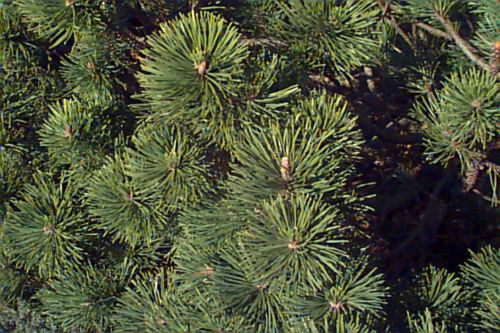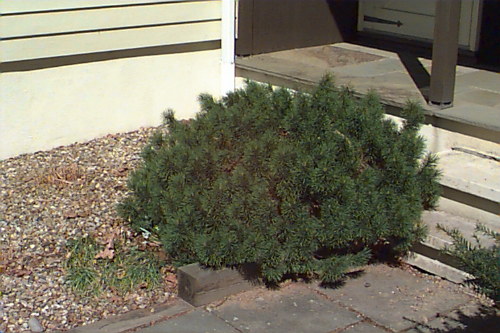Pinus mugo
Swiss Mountain Pine, Mugo Pine
Pinaceae
ExpandHabitat
- native to mountainous areas in Central and Southern Europe
- cold hardy to zone 2
Habit and Form
- evergreen dwarfed tree
- dense shrub growth habit to multi-trunked tree
- varies in size from 5 to 20', with equally varying spread
- some specimens have reached 50' tall
- medium texture
- slow growth rate
Summer Foliage
- rigid and slightly curved needles
- needles in fasicles of 2's
- margins serrate
- needles 1 to 2" long
- bright green color
Autumn Foliage
- no fall color (remains green)
- needles persist 5 years
Flowers
- monoecious
- no ornamental value
Fruit
- dark gray cone
- ovoid, 1 to 2" long
- held in clusters of 2 to 4, or found alone
- tip of cone surrounded by a darker ring
Bark
- gray
- plated appearance, but does not peel
- when leaves abscise, rough protuberances are left
Culture
- prefers a deep, well-drained, loose soil, but also quite adaptable
- sun to partial shade
- easily transplanted
- part of the new candles (spring growing shoots) can be removed to slow size increase and change shape; removal of older tissue by direct pruning yields varying results
Landscape Uses
- groups or mass planting
- possibly a good specimen
- foundation planting
- evergreen border
- one of the few pines tolerant of some shade
Liabilities
- scales can be a pest problem
- shoot tip moth damages new candles
- although often considered a dwarf, actually variability in size, so cultivar choice is critical
ID Features
- needles in 2's, stiff and curved
- protuberances left by abscised leaves
- generally dwarfed appearance
- small resinous buds, which are hard to see
- dark ring around cone tip
- bark is scaly
Propagation
- by seed, no treatment or dormancy is needed for good germination
- cultivars are grafted on seedlings or by cuttings
Cultivars/Varieties
var. mugo (also listed as var. mughus) - This is a low-growing variant that reaches 8' tall and up to twice as wide. Thus, small container plants carrying this name at nurseries will not stay small.
var. pumilio - A prostrate, open growing plant, this form can reach 10' wide and only a few feet tall. Small plants purchased under this name can be expected to grow large in time.
'Amber Gold' (perhaps the same as 'Pot O' Gold') - A mounding selection that is compact and slow-growing, this plant truly shines in winter. The needles turn orange-yellow in the cold months, fading to green once again as spring commences. This novel habit adds interest to the winter landscape.
'Mops' - A popular dwarf form (to 3' tall), this plant remains very tight and small naturally without pruning.
'Slowmound' - Another popular true dwarf selection (to 3' tall), this cultivar forms a dark green, dense mound and won't outgrow its planting space. Similar true compact clones include: 'Paul's Dwarf', 'Sherwood Compact', 'Valley Cushion' and 'White Bud'. The latter has bright white, resinous winter buds.
'Tannenbaum' - A larger grower, this plant forms a nicely pyramidal "Christmas Tree" shape with dense habit and deep green needles. It grows 10' tall with a spread of 6'. Its extreme hardiness, to USDA zone 2, makes it a good choice for a dwarf pine in cold areas.
'Teeny' - Perhaps the smallest form available, this selection exhibits very short needles and short growth to form a compact bun.
